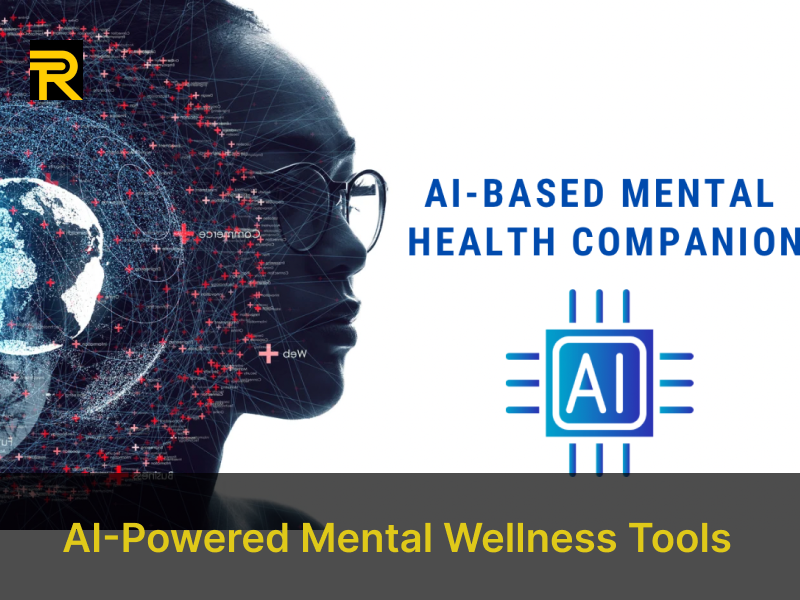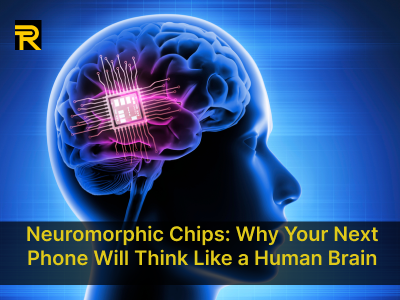
AI-Powered Mental Wellness Tools
AI-Powered Mental Wellness Tools
Artificial Intelligence (AI) is revolutionizing mental health care by offering accessible, scalable, and effective solutions. From AI mental health apps for personalized therapy to AI-powered mood tracking wearables, the landscape of digital mental wellness is evolving rapidly. However, concerns such as privacy risks of AI therapy platforms and AI bias in mental health diagnosis also need attention. In this article, we will explore the role of AI in mental wellness and evaluate its potential and limitations.
AI Mental Health Apps for Personalized Therapy
With the growing demand for mental health support, AI mental health apps for personalized therapy have emerged as a game-changer. These apps use machine learning algorithms to analyze user input and offer customized therapy sessions. They can help individuals track their mood, provide self-help exercises, and even suggest coping mechanisms based on their emotional state.
Popular AI mental health apps for personalized therapy include:
-
Woebot: A chatbot-based therapy assistant
-
Wysa: AI-driven emotional support
-
Replika: A virtual AI companion for mental health support
Best AI Chatbots for Anxiety Management 2025
As we enter 2025, the best AI chatbots for anxiety management are becoming increasingly sophisticated. These chatbots provide on-demand support, reducing the need for human therapists in certain situations. Advanced Natural Language Processing (NLP) enables them to engage in meaningful conversations, offering cognitive behavioral therapy (CBT)-based responses.
Some of the best AI chatbots for anxiety management 2025 include:
-
Youper: An AI-powered chatbot for anxiety relief
-
Tess: AI-driven emotional well-being chatbot
-
MindDoc: Self-reflection and guided therapy chatbot
Ethical Concerns with AI-Driven Mental Health Tools
While AI offers promising mental health solutions, ethical concerns with AI-driven mental health tools remain a major issue. These include:
-
Lack of human empathy in AI-based therapy
-
Risk of misinformation due to AI misinterpretation
-
Dependency on AI rather than seeking professional help
As AI technology advances, it is crucial to establish ethical guidelines that ensure these tools are used responsibly and in conjunction with human therapists.
AI Mindfulness Apps for Stress Reduction
In addition to therapy, AI mindfulness apps for stress reduction are gaining traction. These apps use AI-driven insights to offer guided meditation, breathing exercises, and relaxation techniques.
Some of the top AI mindfulness apps for stress reduction include:
-
Headspace: AI-assisted meditation and mindfulness
-
Calm: Personalized relaxation techniques
-
Aura: AI-powered mood tracking and meditation
Privacy Risks of AI Therapy Platforms
One of the biggest concerns in AI mental health is the privacy risks of AI therapy platforms. Many platforms store and analyze user data, which raises questions about confidentiality, data security, and potential misuse.
Key privacy risks include:
-
Unauthorized data access and breaches
-
AI tracking personal conversations
-
Selling user data to third parties
Users must ensure they are using platforms with robust encryption and transparent data policies.
AI vs Human Therapists Effectiveness Study
The debate on AI vs human therapists effectiveness study continues as researchers compare AI-based interventions with traditional therapy. While AI can offer round-the-clock support, it lacks the human empathy that many individuals need. Studies suggest that AI therapy is effective for mild mental health conditions but is not a replacement for human therapists in severe cases.
Free AI Mental Wellness Tools for Students
Students often face stress, anxiety, and depression, making free AI mental wellness tools for students highly beneficial. These tools provide cost-effective mental health support, enabling students to manage their emotional well-being without financial strain.
Some top free AI mental wellness tools for students include:
-
Sanvello: Free mental health tools for students
-
AI Coach: Student-focused emotional support
-
MoodMission: AI-driven stress management
AI-Powered Mood Tracking Wearables
Wearable technology is integrating AI to monitor mental health in real time. AI-powered mood tracking wearables use sensors to track stress levels, heart rate, and sleep patterns, offering insights into mental well-being.
Popular AI-powered mood tracking wearables include:
-
Fitbit Sense: AI-driven stress monitoring
-
Apple Watch: Mood and heart rate tracking
-
Muse: AI-assisted meditation wearable
Generative AI for Cognitive Behavioral Therapy
CBT is one of the most effective mental health treatments, and generative AI for cognitive behavioral therapy is revolutionizing this space. Generative AI can simulate therapist interactions, provide tailored CBT exercises, and adapt to user responses.
AI Bias in Mental Health Diagnosis
Despite advancements, AI bias in mental health diagnosis is a growing concern. AI models trained on limited datasets may misdiagnose individuals from diverse backgrounds, leading to disparities in mental health care. Addressing AI bias requires diverse training data and continuous human oversight.
Conclusion
AI is shaping the future of mental health, from AI mental health apps for personalized therapy to AI-powered mood tracking wearables. However, challenges such as privacy risks of AI therapy platforms, AI bias in mental health diagnosis, and ethical concerns with AI-driven mental health tools must be addressed. As technology advances, balancing AI efficiency with human empathy will be key to making AI-driven mental wellness tools truly effective.
Follow Us
Trending News
Newsletter
Join us to get latest News Updates



